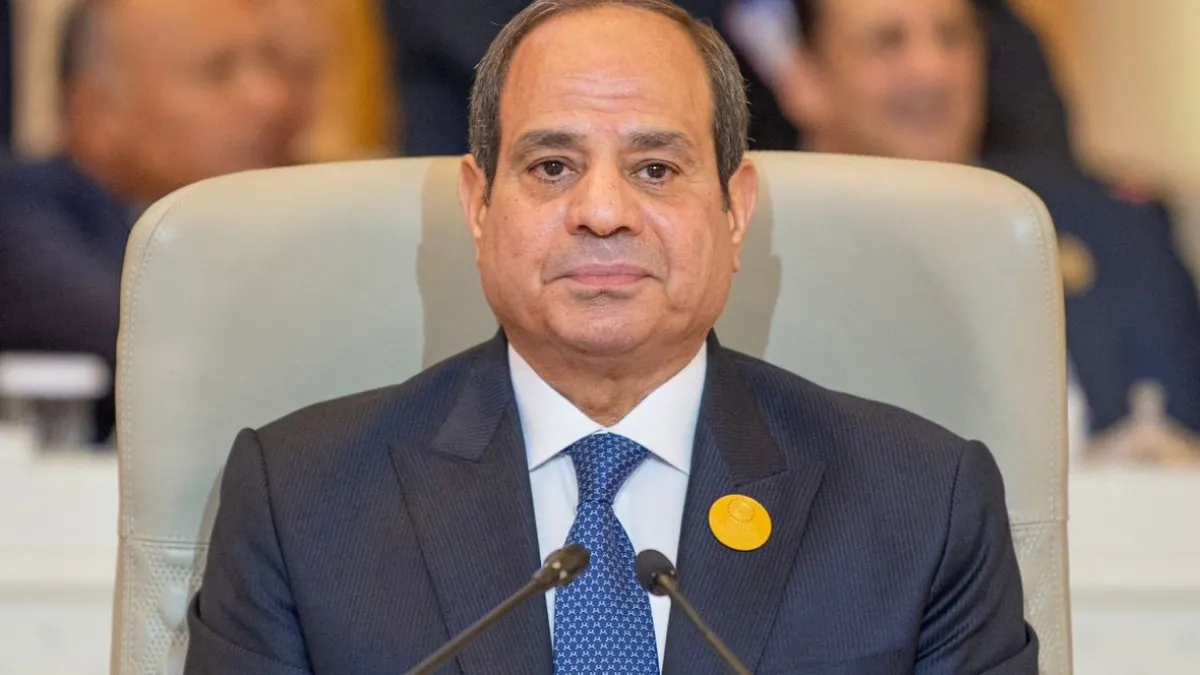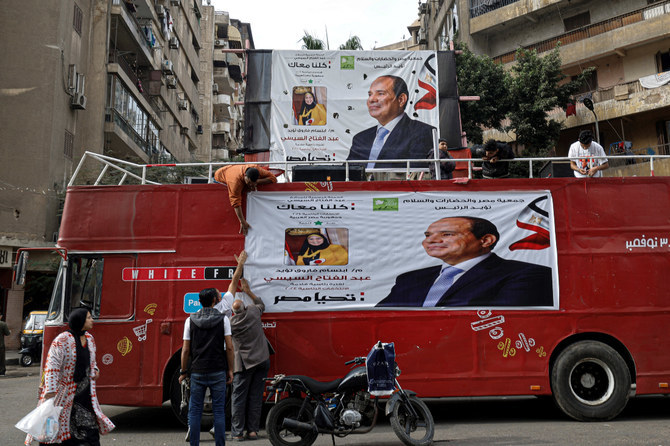Egypt's President Abdel Fattah El-Sisi Clinches Third Term Amidst Challenges
Egypt's President Abdel Fattah el-Sisi clinches third term amidst challenges as a tenacious figure, steering his country through tumultuous waters.
Author:Rhyley CarneyReviewer:Paula M. GrahamDec 19, 20234.5K Shares88K Views

Egypt's political landscape has witnessed a decade-long saga under the leadership of President Abdel Fattah el-Sisi, marked by controversy and, according to the recent election results, continued stability.
Egypt's President Abdel Fattah el-Sisi clinches third term amidst challengesas a tenacious figure, steering his country through tumultuous waters.
As he embarks on his third term, securing a decade in power, el-Sisi grapples with economic challenges, regional conflicts, and the echoes of a contentious past.
Election Victory Amidst Economic Turmoil
Despite a turbulent economic period where the Egyptian economy faced significant challenges, President el-Sisi secured his third term with an overwhelming 89.6% of the vote.
The election, held between December 10 and 12, saw an "unprecedented" turnout of 66.8% of voters, according to the National Elections Authority.
El-Sisi's presidency has been characterized by challenges and controversies, including the economic meltdown of the last 21 months. The currency crashed, prices soared, and many Egyptians struggled to afford basic necessities.
The International Monetary Fund (IMF) offered a bailout, but concerns about economic mismanagement persisted.
Additionally, el-Sisi's rise to power a decade ago involved the army's deployment to depose Egypt's first freely elected president, leading to the Rabaa massacre and international condemnation.
Authoritarian Grip And Regional Influence
El-Sisi's authoritarian grip on Egypt has been a central feature of his rule. The military-security establishment, in control of both politics and the economy, has faced criticism for stifling political dissent and human rights abuses.
Despite these challenges, el-Sisi strategically positioned himself as a regional leader during conflicts in Libya, Sudan, Syria, and the recent Gaza war.
The role played in mediating the Gaza conflict provided him with additional domestic and international support.

International Relations And Geostrategic Importance
Egypt's geostrategic importance has played a crucial role in el-Sisi's diplomatic relations. Control over the Suez Canal, vital shipping lanes, and its proximity to regional conflicts have made Egypt a key player in the Middle East.
International partners, including the U.S. and the European Union, have shown a willingness to engage with Egypt, despite concerns about human rights abuses.
The economic challenges facing Egypt have prompted international organizations like the IMF to engage in talks to address the financial crisis. However, concerns persist that subsidizing el-Sisi's regime without structural reforms may not yield long-term stability.
The Future Amidst Uncertainty
As el-Sisi begins his third term, the focus turns to whether economic conditions will improve and whether the government will address long-standing issues of political repression.
The outcome will not only shape Egypt's future but also influence the geopolitics of the Middle East.
In the complex dance of regional politics, President Abdel Fattah el-Sisi remains a figure of both stability and controversy, navigating the intricate challenges that define Egypt's role on the global stage.
Final Words
President Abdel Fattah el-Sisi's recent electoral victory, securing his third term, marks a continuation of his decade-long leadership in Egypt.
Despite facing economic turmoil, regional conflicts, and international criticism, el-Sisi has adeptly maintained stability and strengthened his position both domestically and on the global stage.
The challenges ahead include addressing economic struggles, navigating international relations, and confronting longstanding issues of political repression.
As Egypt looks to the future, el-Sisi's presidency remains a complex blend of controversy and stability, shaping the nation's trajectory in a dynamically changing Middle East.

Rhyley Carney
Author

Paula M. Graham
Reviewer
Latest Articles
Popular Articles